Mikan and finding the wrong book
I spent about a year absentmindedly looking for a book in the Kinokuniya1 bookstore in Shinjuku, and consistently happening upon the wrong one. The book I kept finding had a similar cover to the one I was looking for: green leaves, and a muted background. I would pick up the wrong book thinking this is it, only to slowly realize that it wasn’t. The problem was that I was searching for a book without ever knowing its title, or author. How can someone look for something without knowing what it is?
I had held the book in my hands only once. I had opened it, read the inside flap and knew it was for me—that it would be for me at a later time. The day I found it again (about a year after its disappearance) I didn’t buy it. To come across it once more at long last was enough. It was located in the poetry section, no longer residing in memoir. I pulled it from its shelf and took a photo of the cover so I could remember its name. Then I put it back.
A few weeks later, I was at home doing the dishes when I heard a car pull up outside. Before looking out the window I remember somehow knowing it was F3, though he wasn’t expected. We hadn’t spoken to each other in a while, and we were entertaining the idea of space and silence after many things had transpired between us. He rang the doorbell—or knocked—maybe neither. I only remember I opened the door to ask why he had come. He held the book in his hands. Is this the right one? He asked, nervously. It was. In the bookstore, I had told him about how this memoir—now considered poetry—had evaded me for a year. I showed him its new home—I didn’t expect he would bring it to mine.
Sitting on my green carpet with the book with green leaves and muted background, I remember feeling overwhelmed. I heard F’s car drive away, dissolving again into traffic and anonymity, and I wondered if it would be right to see him again another day.
The book’s title was long, the memoir: relatively short. It was about the writer’s mother and father who passed, one not long after the other—whose names I didn’t know but felt I should. As I read, I kept stopping myself. Slowing down. Each page was filled with so much grief and the beauty of shared grief that I didn’t—and still don’t—want it to be finished.
When things end, which is precisely what the writer is contemplating, what do we do? How do we accept that change has touched us, altered even those who we imagined infallible? And what of the inclination, the guilt, or semi-obligation to document all of it—to describe what it looked like and sounded like when they were still here; what it looks like and sounds like as we feel ourselves change.
I was sitting outside in the cold of fall, reading the book with the green leaves and muted background, when I read something that made me sit upright and gasp. It was a title. One Hundred Years of Solitude4—this was the writer’s late father’s novel. It was also the book I kept picking up by accident for the last year when looking for the one that was now in my hands. In looking for the son, it seems I had found the father instead—again and again; perhaps drawn to the familiar by fault or virtue of not knowing either’s name.
I still haven’t finished the book, and I am trying to allow myself to take it slowly. To take everything slowly.
It’s January. A new year with a different number label. I’m awkwardly peeling back the skin on a mikan5. Everything beneath the peel is soft and held together with such a thin, translucent layer. Some of the peel gets stuck underneath my finger nails as I dig and pull.
If you find value in my work, please share it with others. Growing this newsletter supports me substantially. A shared self is a vulnerable place to be, and I value your readership very much. It’s where I want to be, and I’m happy that you’re here too.
Kinokuniya 紀伊國屋 きのくにや is a bookstore chain in Japan that was founded in 1927. The branch that I visit the most is located above the Nitori on the 6th floor in the Takashimaya Square near Shinjuku Station. You can take an elevator, but I prefer to go by escalator.
Reflections of the Weeping Willow on the Water-Lily Pond by Claude Monet. Sold to art collector and friend, Kōjirō Matsukata, in the 1920’s. The painting was lost in time for about 60 years. After being found in the Louvre in 2016 in much disrepair, it was restored and now hangs in the National Museum of Western Art in Tokyo.
One Hundred Years of Solitude, Nobel Prize winning novel by Gabriel García Márquez.
Mikan みかん is a type of mandarin orange from Japan. A winter fruit. Citrus. Eaten around New Year.


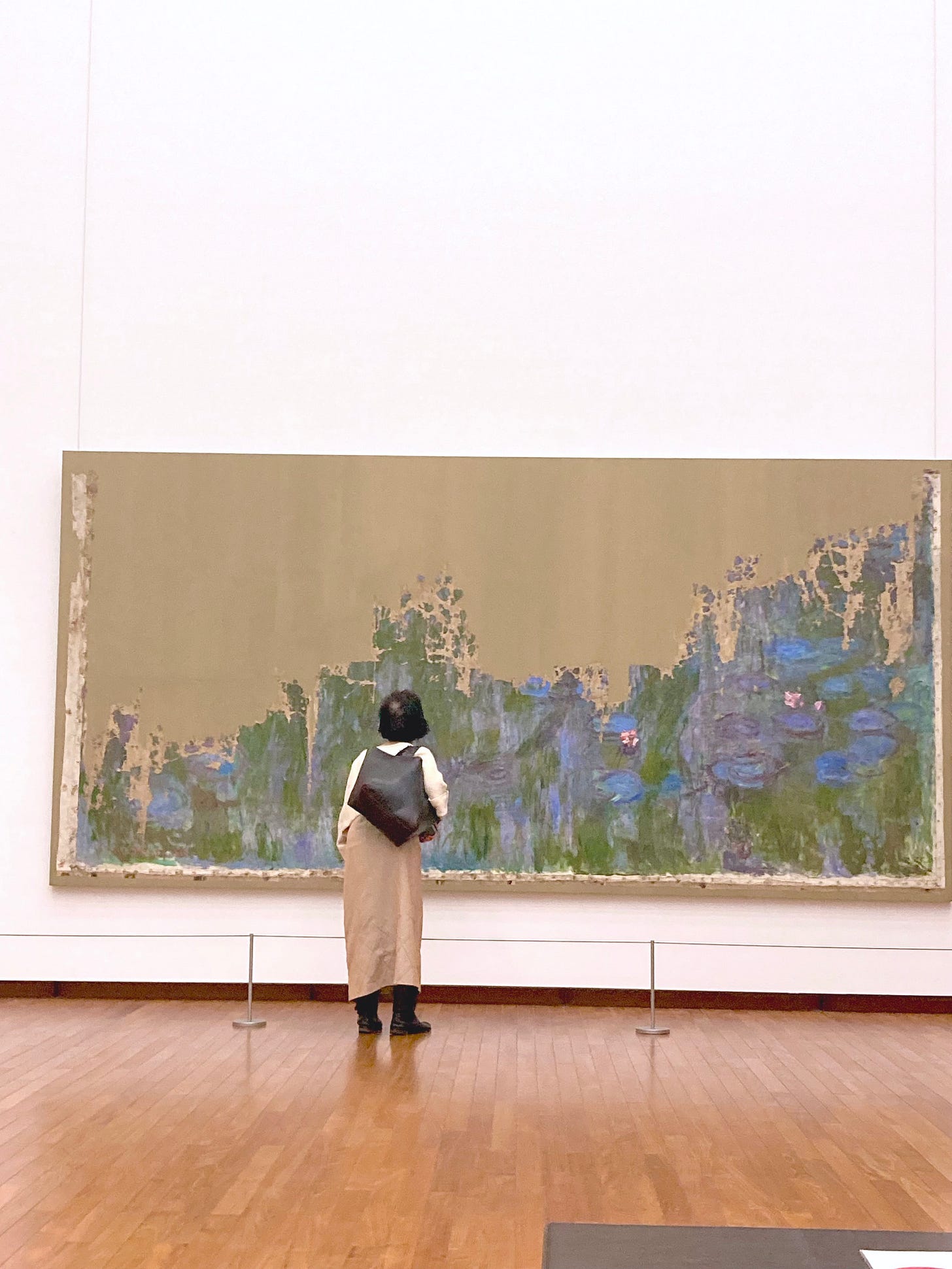
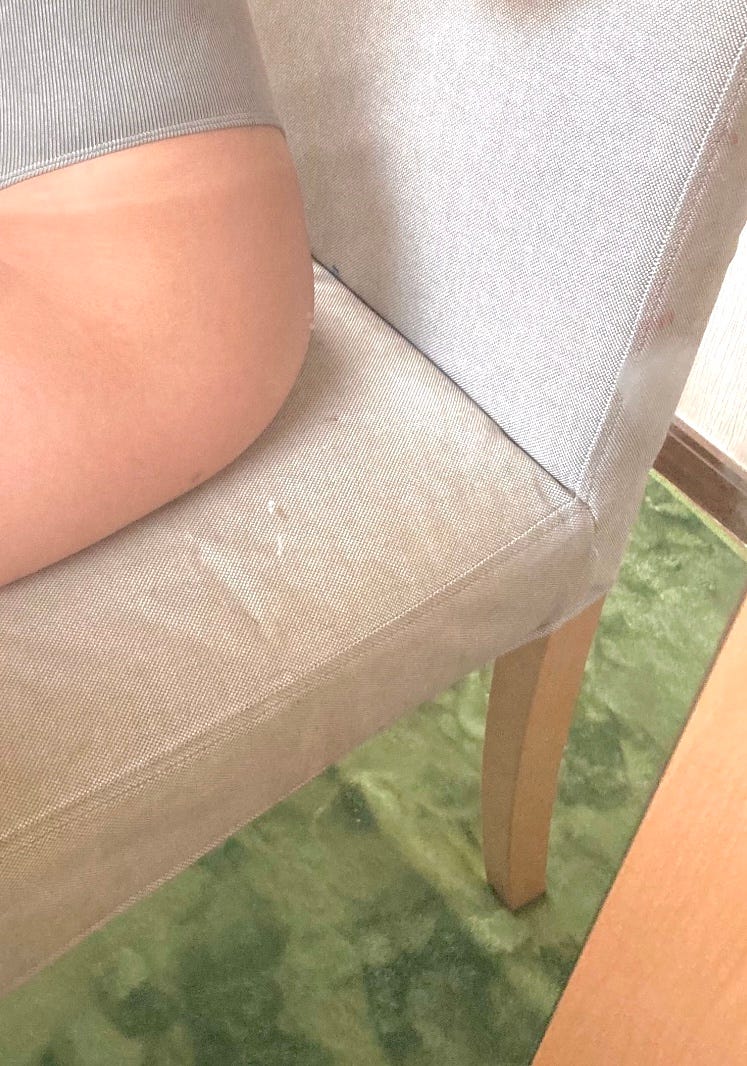
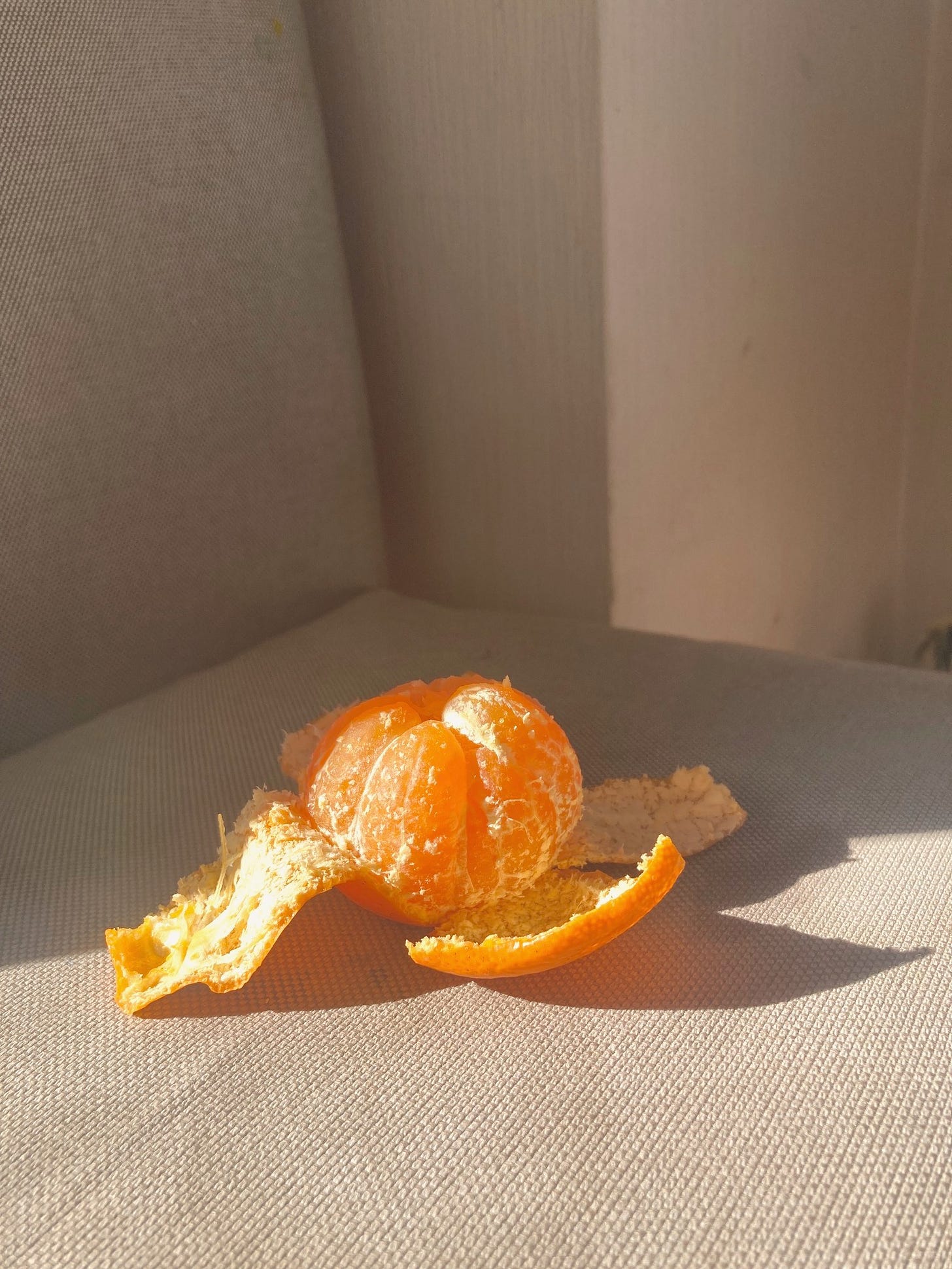
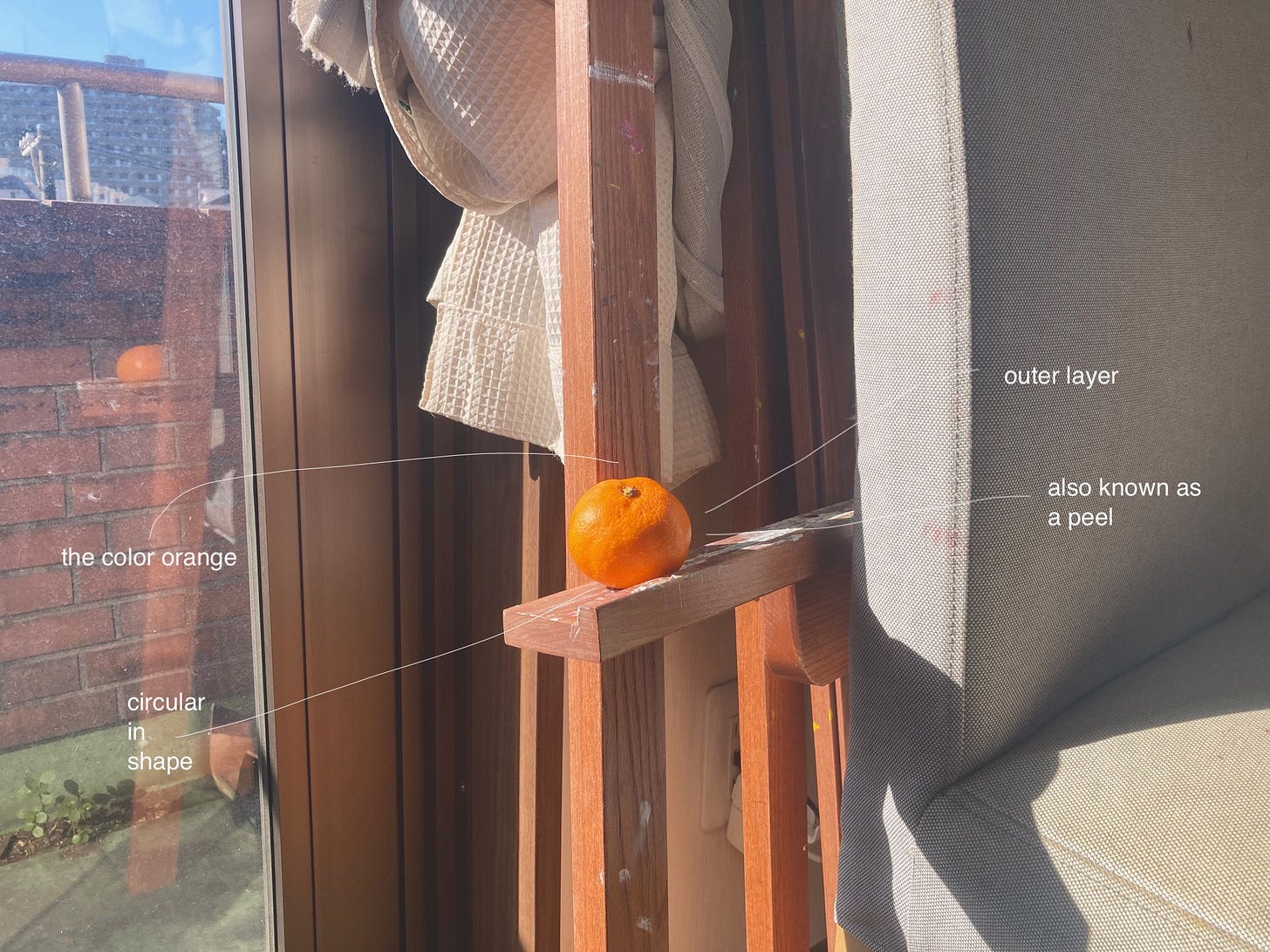
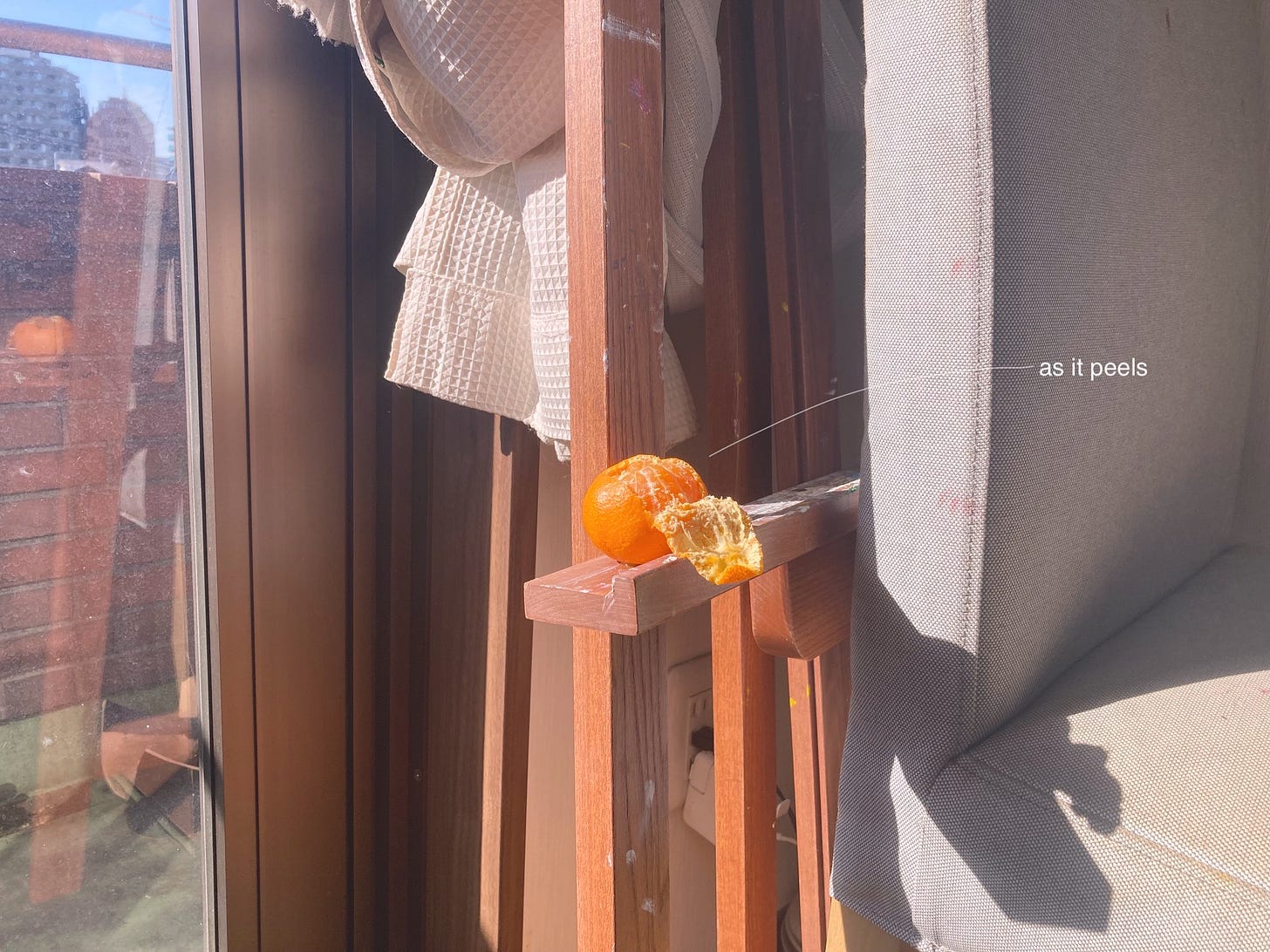


I am the author of the memoir. Thank you for reading it and writing this lovely piece about an incredible coincidence. Or shall we just call it a mystery?
Rodrigo Garcia
What a profound comment on the power of grief, the grief we all feel for so many things/people. I love how you wove it all around that book and peeling the orange. Perfect!